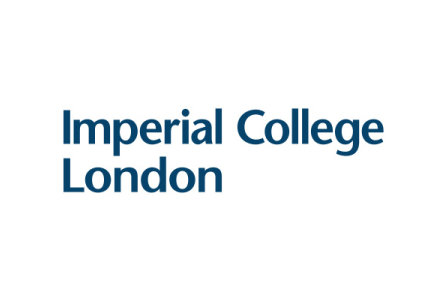Imperial College London: Supporting students to become future leaders in the transition to net zero
Imperial hosted diplomats and academics to discuss ways for universities to support students to become future leaders in the transition to net zero.
The Imperial Global Science Policy Forum event, organised with the London Education and Research Network (LEARN), highlighted some of the work that Imperial is doing to find solutions to some of the most pressing climate and environmental challenges.
Professor Emma McCoy, Vice-Provost (Education and Student Experience), spoke about Imperial’s Transition to Zero initiative, which aims to inspire fundamental changes in areas such as the way materials are used in manufacturing, how we produce food and energy, and will help mitigate the impact of air pollution on people’s health.
Professor McCoy said: “Our focus is to educate the next generation of leaders that can tackle the sustainable development goals and climate targets.
“But we can’t just have education in one narrow silo if we are to solve these large global challenges. The role of universities is research and innovation, supporting future generations, raising awareness and building partnerships.”
Science at the core of the SDGs
Dr Peggy Oti-Boateng, Director of Science, Policy and Capacity Building at UNESCO, explained that science is ‘at the core’ of the UN’s Sustainable Development Goals (SDGs).
Dr Oti-Boateng said: “Making science education more connected to societal needs and promoting equal opportunities for all can be a true game changer in bridging the science, technology and innovation gaps between and within countries and fulfilling the human right to science for sustainable development for all.”
Dr Mohamed El-Ansari, from the Embassy of the United Arab Emirates and founder of LEARN, spoke about how the network aims to help students engage more in research.
The event was attended by delegates from the Embassies of Brazil, Mexico, Iraq, St Kitt’s & Nevis, Italy, Romania, Nepal, Malaysia, Algeria, Hungary, Yemen, and Uzbekistan.
Student climate challenges
Imperial hosted diplomats and academics to discuss ways for universities to support students to become future leaders in the transition to net zero.
The Imperial Global Science Policy Forum event, organised with the London Education and Research Network (LEARN), highlighted some of the work that Imperial is doing to find solutions to some of the most pressing climate and environmental challenges.
Professor Emma McCoy, Vice-Provost (Education and Student Experience), spoke about Imperial’s Transition to Zero initiative, which aims to inspire fundamental changes in areas such as the way materials are used in manufacturing, how we produce food and energy, and will help mitigate the impact of air pollution on people’s health.
academics and leaders
Dr Mohamed El-Ansari, Dr Peggy Oti-Boateng and Professor Emma McCoy
Professor McCoy said: “Our focus is to educate the next generation of leaders that can tackle the sustainable development goals and climate targets.
“But we can’t just have education in one narrow silo if we are to solve these large global challenges. The role of universities is research and innovation, supporting future generations, raising awareness and building partnerships.”
Science at the core of the SDGs
Dr Peggy
Dr Oti-Boateng spoke about the importance of science education
Dr Peggy Oti-Boateng, Director of Science, Policy and Capacity Building at UNESCO, explained that science is ‘at the core’ of the UN’s Sustainable Development Goals (SDGs).
Dr Oti-Boateng said: “Making science education more connected to societal needs and promoting equal opportunities for all can be a true game changer in bridging the science, technology and innovation gaps between and within countries and fulfilling the human right to science for sustainable development for all.”
Prof Toumi
Professor Toumi spoke about some of Imperial’s climate work
Dr Mohamed El-Ansari, from the Embassy of the United Arab Emirates and founder of LEARN, spoke about how the network aims to help students engage more in research.
The event was attended by delegates from the Embassies of Brazil, Mexico, Iraq, St Kitt’s & Nevis, Italy, Romania, Nepal, Malaysia, Algeria, Hungary, Yemen, and Uzbekistan.
Student climate challenges
student working in lab
Students gave the delegates a tour of some of the labs at Imperial
Imperial’s Professor Ralf Toumi, co-Director of the Grantham Institute – Climate Change and Environment, spoke about how they are empowering future leaders through postgrad training programmes, supporting multidisciplinary climate and environmental research and fostering new collaborations and networks at Imperial and beyond.
Sarah Ranchev-Hale from Imperial’s Enterprise Lab spoke about the recent Global Challenge Lab which focused on climate action. The entrepreneurship programme runs in partnership with Tsinghua University’s x-lab in Beijing and the Technical University of Munich, saw students from across the world form international teams and generate solutions that address SDG 13: Climate Action.

